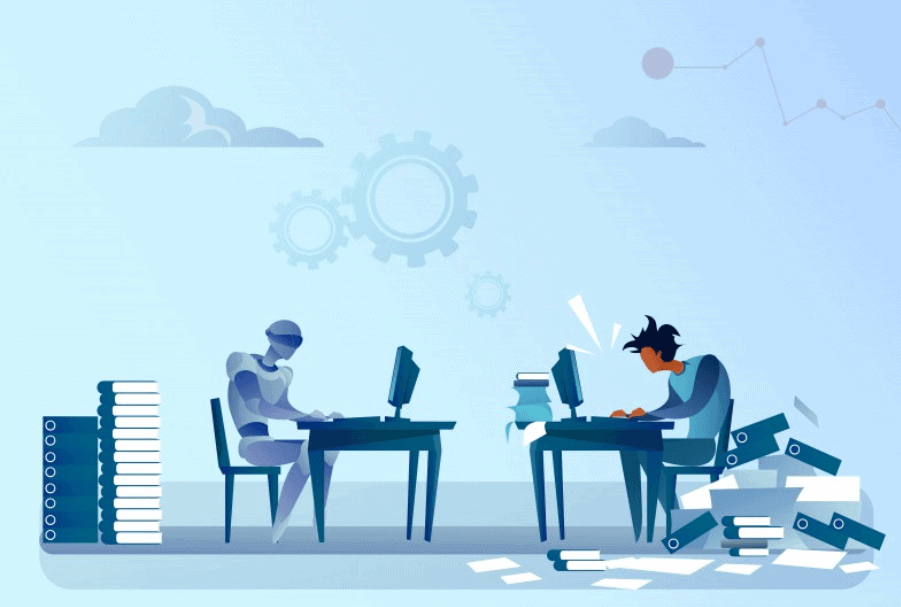Job interviews.
We’ve all had our fair share of them.
Here’s how a typical conversation with a recruiter goes:
Interviewer: Hello! I’m Jen. I’ll be assessing you for the Analyst role at AAC Corp. I’d like to ask a few questions to get to know you better. Is this a good time to chat?
Candidate: Sure.
Interviewer: Perfect! What’s your residency status?
Candidate: I’m a Singaporean.
Interviewer: Ok, and I see there is no degree listed on your resume. Where did you study?
Candidate: I graduated from NUS.
Interviewer: Nice, that’s a great school! I’d like to understand how you react to situations. I’m going to share a scenario: Let us say you have been introduced to a new project, where the team has worked together before and have a certain process established that gives them a good output rate. They have been following this process for a long time now and have been one of the few top performers in the organisation. What would you do next?
Candidate: I would learn the process from the team and suggest alternatives to improve the process.
Interviewer: Why would you try to tweak the existing process, especially if it has been working fine?
Candidate: I think it’s important to be innovative and try new things. I also believe there are always areas for improvement.
Interviewer: It’s good to hear that, innovation is one of our core values. Now, let’s switch gears and see if you have the right knowledge for this role. Are you familiar with Microsoft Excel?
Candidate: Yes, I used it extensively throughout my bachelor’s degree.
Interviewer: Since you’re familiar with Excel, what feature enables you to adjust or back solve the value in a cell to reach a desired outcome in a formula?
Candidate: Trendline.
Interviewer: Alright. One last knowledge based question, at a party, everyone shook hands with everybody else. There were 66 handshakes. How many people were at the party?
Candidate: 33
Interviewer: You have an interesting profile and I’ll like to review it with our HR Team. We should be able to come back to you in the next 1-2 weeks. Meanwhile, you can check in with me for updates on the status of your application.
One week later, this candidate takes the exam, and lands the job.
But that’s not the point of my story. My point is, the interviewer was not human. It was an AI chatbot, created by impress.ai.
AI is taking over our jobs!
While AI has made giant leaps in the last decade, it has at the same time, raised concerns. For example, many people fear that AI could go rogue or take away their jobs overnight.
Such fears are not unfounded.
For example, radiologists, doctors who interpret X-Rays, are already being disintermediated by AI, which can deliver more accurate diagnoses and work 24/7.
Other professions, which involve repetitive tasks can be replicated with the help of machine learning, are also at risk.
However, AI can also help us find jobs and can help companies find top quality employees that they need.
AI is aiding HR professionals across a spectrum of responsibilities by automating processes.
Hiring is a key focus of the HR department; recruitment trends show a positive correlation between brand reputation and the volume of applicants who vie for open positions.
If one recruiter is responsible for sifting through and shortlisting top applicants from a pool of hundreds of candidates, it’s unlikely that they will be able to perform this task well.
The recruiter will likely face boredom, fatigue, take shortcuts, or filter out qualified applications based on unconscious bias.
With AI technology in place, software can alleviate the stress and they monotony of shortlisting candidates.
For example, an AI chatbot can screen, interview, and shortlist candidates autonomously, 24/7.
This would ensure that top applicants are found, the recruiter saves time, while candidates receive a more positive and unbiased interview experience.
With technology ready to improve the hiring process, recruiters will be given an opportunity to become talent advisors to their business, steer hiring decisions based on market trends, and focus time engaging with top candidates.
Removing our human bias
Apart from making the hiring process more efficient, AI can also help remove bias. While it’s unethical to discriminate applicants based on their name, gender, or ethnicity, studies have shown that unconscious biases occur regularly.
For instance, African Americans and Asians are more likely to receive interview calls once they mask their ethnicity and “whiten” their name.
AI can disregard information regarding a candidate’s age, race, and gender and does not have any pre-conditioned biases.
Therefore, AI can make hiring more fair by reducing bias and help create a more culturally diverse workplace.
Of course, regardless of how advanced this technology is, it cannot complete the entire hiring process on its own; a human recruiter will still be the one who makes the final hiring decision by assessing candidates on intuition and ensuring that they are the right fit for the role.
Studies have shown that people are concerned about AI learning biases from humans. In reality, this only happens with indiscriminate applications of AI.
For example, Tay, Microsoft’s AI Twitter chatbot, learned to exhibit racism overnight.
Software can be built to explicitly mask biasing information based on learning algorithms. If the machine learns undesirable patterns, they are easier to detect early on and reverse what has been learned.
With humans, biasing judgements don’t become apparent until an employer gets sued or a formal study is done.
Once employees are hired, the next responsibility HR takes on is ensuring they receive a proper onboarding experience.
This involves repetition; an inhouse trainer may be expected to repeat the same training process at different intervals with various cohorts of new employees. They may also be expected to answer the same questions multiple times.
AI platforms have the ability to customise yet automate onboarding procedures.
They can also alert the trainer to intervene directly with employees who exhibit disgruntled behaviour to prevent employee churn or to find creative ways to keep employees engaged and excited to come into work everyday.
Using AI to measure (and improve) employee performance.
Another vital component of HR involves measuring performance of employees.
This type of evaluation may involve data, ensuring metrics are achieved and progress has been made over a course of several months.
While crunching data and interpreting benchmarks may not be everyone’s forte, AI makes the process simpler by assessing and creating visual representations of data.
At this point, an HR professional steps in to interpret the data, draw conclusions, and ask the right questions.
In all the three scenarios outlined above, from hiring employees, to onboarding new employees, and measuring performance, AI plays a critical role working alongside humans.
Sophisticated technology platforms have mastered the ability to crunch large volumes of data, recognise patterns, and complete tasks requiring repetition.
With time consuming tasks being completed through AI, HR specialists have the chance to focus on more exciting and fulfilling tasks, such as thinking creatively and strategically, something that AI is incapable of doing.
AI tools also enable HR professionals with visualisations, auto-generated charts, and data, so they can execute high level tasks.
Conclusion
Regardless of technological advances in AI, HR will always need people.
Bots will not replace the “human” aspect in human resources.
HR professionals understand their employees and their organisation in ways that AI platforms cannot comprehend.
AI automates repetitive tasks, giving the HR team more time to focus on high value tasks like engaging with candidates on a deeper level before making hiring decisions rather than spending time reviewing and sorting resumes.
The HR team can also focus on shaping and improving company culture, building relationships with current employees, and addressing issues within the workplace from a strategic standpoint.
The bottom line is HR & recruitment in the future will be a cooperation between human and machine, each playing to the other’s strengths.
[guestpost]This is a guest post by Pooja Khandelwal. She is a Product Marketing Manager at impress.ai – AI Powered Chatbot for Recruiters. Interested in all things tech, from AI to IoT and machine learning. She believes in healthy living, lifelong learning, and having an open mind.[/guestpost]




